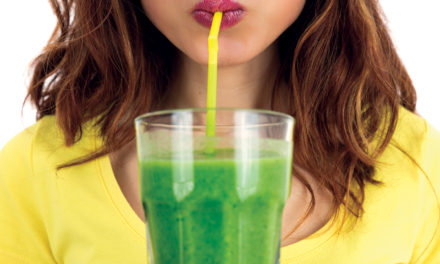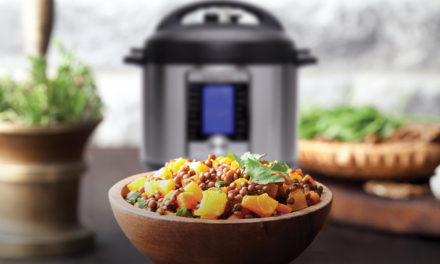It’s a well-known fact that a good diet is critical for a healthy life, but zeroing in on which foods you should eat is often unclear. While the Internet is overloaded with articles and blogs about what to consume to live longer (and get thinner), it takes just a few clicks to realize that much of that information contradicts itself. One day, an item is deemed the superfood du jour, only to be dismissed the next as being overhyped or, even worse, harmful. It’s easy to see why so many people just give up and soothe their confused minds with Doritos.
For foods with questionable reputations, a closer look and some knowledgeable experts go a long way toward dispelling myths. It may even change how you eat.
Eggs
When it comes to rocky reputations, no provision has had quite the highs and the lows of the egg. Eggs once sat at the top of the food chain until a link between cholesterol and heart disease sent them crashing to the bottom faster than Humpty Dumpty. In 1961, the American Heart Association (AHA) first issued dietary warnings about a link between dietary cholesterol and heart disease. The AHA recommended eating less than 300 mg of cholesterol a day, and one large egg (or the yolk specifically), with 213 mg, became public enemy No. 1. Until, that is, the Dietary Guidelines Advisory Committee, comprised of the country’s top nutrition experts, reversed its opinion.
“Research has shown that cholesterol from foods does not raise a human’s blood cholesterol level, however, some saturated fats may,” says Mindy Komosinsky, a registered dietitian and certified diabetes educator with Capital Health. “And that’s the good thing about eggs. While they are high in cholesterol, they are low in saturated fat.”
Once they beat their bad rep, eggs were praised for being a nutritional powerhouse—rich in vitamins, minerals, and heart-healthy omega-3 fatty acids. They also have disease-fighting nutrients like lutein and zeaxanthin as well as choline, which aids brain development and memory. “Research has also shown that eggs actually have positive effects on the heart and on weight management efforts,” says Jessica Tsiopelas, a nutritionist with Capital Health. “Eggs are now recommended as good sources of protein, omega-3 fatty acids, and antioxidants.”
Still, keep in mind how you prepare your eggs and what you serve alongside them. “Skip the breakfast meats,” Komosinsky says, “and cook your eggs with a little nonstick cooking spray or hard boil them.”
Red Meat
Red meat has also had a seesawing reputation, with many in the medical community calling it a nutritional no-no, in part because of its link to heart disease and cancer. On the other hand, popular diets like Atkins and Paleo recommend loading up on the protein in lieu of carbs to keep yourself healthy, lean, and full.
The truth falls somewhere in the middle, says Keith Wolfson, M.D., FACC, a cardiologist with Mercer Bucks Cardiology. “Red meat is ok in moderation,” he says. Beef, duck, lamb, and pork (yes, pork is actually considered red meat) are a good source of protein, iron, zinc, and vitamin B12, but they can also be high in saturated fat, so it’s important to choose the right cut and portion.
Processed meat—hot dogs, bacon, sausage—should be eaten sparingly (this includes processed chicken and turkey products as well). “Studies have shown an association between red meat, especially processed meats, and cancer and elevated cholesterol levels,” Komosinsky says.
Dr. Wolfson recommends staying away from processed meats. “If you are going to eat red meat, have a lean cut of steak—filet mignon or a New York strip are good examples, as opposed to a ribeye, which has quite a bit more fat,” he says.
Water
Drilled into the American consciousness is the belief that healthy living requires drinking 8 glasses (or 64 ounces) of water a day. But do we really need that much? Not really, experts say. The 8-a-day mantra originated in 1945 when the Food and Nutrition Board announced that people need 2.5 liters of water a day. Of course, the board added that most of that comes from prepared foods—a fact most people overlooked.
Still, drinking eight glasses of water a day isn’t harmful. Water is a much better beverage selection than soda, juice, and other sweetened drinks, and it’s critical to stay hydrated on hot days or after rigorous exercise. People at risk for kidney stones should also drink plenty of water to prevent stone formation and infection. And if you’re trying to lose weight, water can help with portion control. “I often recommend drinking an 8- to 12-ounce glass of water 10 to 15 minutes before eating a meal,” Komosinsky says. “It really does not take a lot of food to take away the hunger sensation and make you feel satisfied. The problem is that it takes about 20 minutes for your stomach to tell your brain that you are no longer hungry. By drinking water before you eat your meal, you will get the signal that you are no longer hungry before it is too late and you have already overeaten.”
Coffee
Given our country’s java obsession—as evidenced by our willingness to spend $5 a brew—you’d think coffee was sourced from the fountain of youth. What actually gets us hooked on Joe, besides the taste, is caffeine, a stimulant that helps us feel more alert. Despite coffee’s addictive qualities, “studies have shown health benefits of moderate coffee intake, two to four 8-ounce cups a day,” Komosinsky says. “Coffee contains antioxidants that may decrease your risk of Parkinson’s disease, dementia, Alzheimer’s, Type 2 diabetes, and some types of cancer.”
Still, not everyone should indulge—it’s been shown to increase blood pressure and glucose and decrease bone density, she says. Caffeine can also cause irritability and anxiety in high doses and can exacerbate acid reflux. “If you feel jittery or your sleep is affected, it would be wise to decrease the amount of coffee you drink,” she says.
In the end, keeping your diet balanced is what’s important. “For overall good health, remember to include a variety of foods, especially focusing on mostly plant based foods such as fruits, vegetables, beans, nuts, and whole grains,” Komosinsky says.
Red Wine
To the delight of oenophiles everywhere, the medical community in recent years has touted the heart-healthy benefits of red wine. According to Komosinsky, studies have shown that the antioxidants in wine (resveratrol) may be good for your ticker. Resveratrol is a polyphenol found in wine that is thought to help prevent damage to blood vessels, reduce LDL (bad) cholesterol and prevent blood clots. A recent study out of the University of Alberta in Canada found that the health benefits of resveratrol in a glass of wine are equivalent to those we get from an hour at the gym.
But before you buy that Barolo, remember the findings are still a bit murky, and overconsumption of alcohol is linked to cancer, liver damage, high blood pressure, and high triglycerides. “As always, moderation is the key,” Komosinsky says. “Moderation is defined as one drink per day for women and two drinks per day for men. It is never recommended to start drinking alcohol just to prevent heart disease, but it’s ok to enjoy a glass of wine now and then.”






